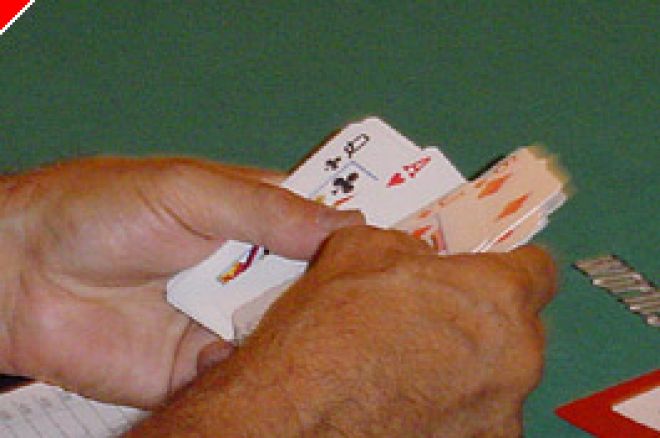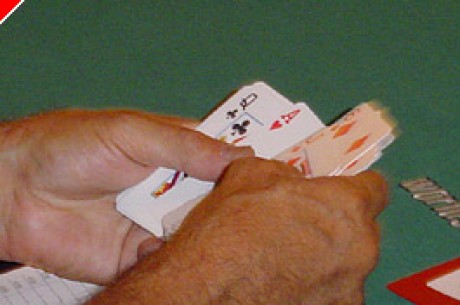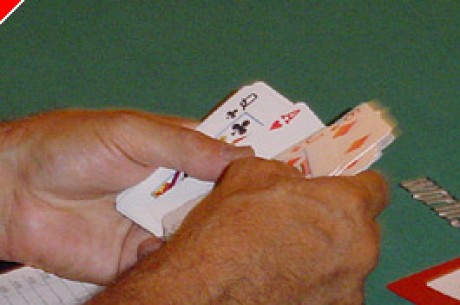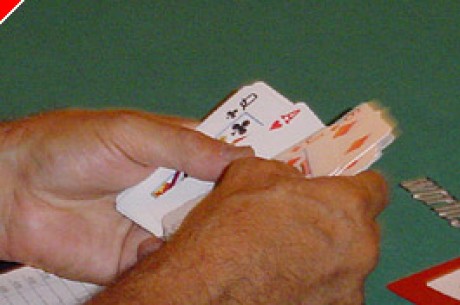Stud Poker Strategy - Playing in a New Game, Part Three

There are a number of strategy concerns you should be aware of when you're sitting in a new game. Some of these are obvious, some less so. Let me address them all.
I already addressed in Part II how you should be aggressive and play your best game. Let me clarify and temper that somewhat. I'm not concerned with whether you're invited back. I don't want you to soft play to be more liked. But there are situations in a new home game when you might deviate from your typically aggressive casino style.
Home game players tend to be looser and more passive than casino players. They tend to play more out of habit than out of a carefully defined strategy. Hence, it is much more common in a home game for players to just call along with the bring-in or initial bet. The same player who might either raise or fold in a typical casino stud game, might well just call the first bet out of routine. I'm not sure why this is, but I've seen it enough to be sure that it is the case.
Accordingly, in games like this, you need to make adjustments. You also want to tend to call with a broader range of hands. Don't do this randomly - just calling more with everything. You still need to be selective. But there are some types of hands you'll call with in a typically loose home game that you would have folded in the tight/aggressive $10/20 game on line or at your nearby casino or card room.
Specifically, if it's a typical home game where the dealer antes $5.00, the bring-in is $5 and the stakes are $15/30, you can go along and call that $5.00 on Third Street with hands with thin draws to powerhouses. So, for example, go ahead and call an unraised pot with three suited cards even if they don't have a high card. Call with your gapped 3-straights. Call with your low pair and low kicker. But be ready to throw them away on Fourth Street if there's no improvement.
That being said, you still want to be aggressive when you have the strong premium pairs. And you don't want to do any bluffing against these players who typically call an initial raise. Wait for the goods and then raise.
This looseness early on doesn't mean you are just going to be loose throughout the game. You really need to stay away from trap hands - and there's a larger menu of them in these home games than in a typically tight casino game. In these games, for example, two pair is really a weak hand, with all of those straight and flush draws drawing against you. The "liveness" of your cards matters a lot. Use the increased amount of information you'll have with all of the exposed cards caused by all of the players who stay in. Figure out whether you pair and its kicker are really live or not. If they are - if your two pair is really live - you can be more willing to stay until Sixth Street and the River to see if you can draw a full house. But if it's either largely dead or clearly second best then don't stay - fold those two pair on Fourth, Fifth or Sixth if you're drawing thin or clearly behind someone else who seems to have a higher two pair.
In short, you're going to play more loosely early on but then more tightly when it comes to hands that don't have as much of a chance of becoming very strong hands. Similarly, if you are faced with unusual aggression, you will be more likely to believe that the person has what they are representing - since they normally are generally passive and loose. If, for example, you hold a pair of Jacks on Fourth Street and someone with a King raises either your bet or someone else's bet, concede right away. Their raise in a game where raises are not very common indicates that they definitely have the Kings. Don't go any further. Concede.
On the River, the rule for casino poker applies even more strongly here in a loose home game. If your hand has any chance of success you'll be calling the bettor down. So even if you only have middling pair and you suspect your opponent has a higher hand, the pot will be so huge you'll need to call. That being said, there will be some actions that will allow you to fold with your weaker hands. If, for example, when you have a mediocre hold and the pot is multi-way at the end - which it frequently is - then you'll be able to safely fold if there is a bet, a raise and a call in front of you. The bet may have been a bluff - even the raise may have been some crazy steam coming out of the second player. But the third call in front of you means that someone thinks they have a high quality hand - at least good enough to pick off the first two players. Other situations like that arise that you'll be able to spot. But just realize that they will tend to have lower standards on the River for their aggressive play that you're used to seeing in a casino. So your standards for folding need to be all the higher.
Ed Note: There are no standards for folding when you are playing at Paradise Poker. Sign Up Today.








